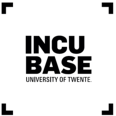As a graduate of the Master’s in Electrical Engineering with a specialisation in Nanoelectronics, you can look forward to an exciting career as an R&D scientist, technological development officer, multi-physics engineer, or quantum application scientist, to name but a few. You can also continue with a PhD or EngD programme. What about starting your own business?
Type of degree
Upon completion of this Master's with a specialisation in Nanoelectronics, you will receive a Master’s degree in Electrical Engineering. Also, you can title yourself Master of Science (MSc). Your specialisation will be mentioned on your diploma supplement, highlighting your specialised knowledge and skills in the field of nanoelectronics.
Job opportunities
As a graduate of this specialisation, you will be able to develop innovative concepts in nanoscale electronic devices, focusing on neuromorphic and quantum electronics. With your extensive knowledge of the electronic and magnetic properties of nanoscale devices, you will be well prepared to work at quantum electronics companies, research laboratories, medical devices and biotechnology institutes, or industrial machinery manufacturing companies, among others.
Whichever career path you choose, you will be sure to find exciting opportunities at various private and public organisations. You can work at a wide range of leading companies in the semiconductor industry like ASML and Lam Research or an international research and development centre, such as IMEC. Also, you can work at Delft Circuits, a quantum technology company providing innovative hardware solutions to quantum engineers. Are you interested in a career at an industrial machinery manufacturing company, such as Demcon? What about jumpstarting your career at IBM and joining its quantum computing programme?
Start a business
Do you have a great business idea? At the University of Twente, you can turn it into reality! At UT, we highly encourage entrepreneurship. In fact, with over 1,000 start-ups to its name, UT is recognised as one of the most entrepreneurial universities in the Netherlands. Did you know that big international companies like Booking.com and Just Eat Takeaway were once founded by students of UT? We are keen to put your scientific knowledge to practical use in solutions that people and society need. Your innovative ideas, creativity and the courage to put in the extra mile will be rewarded. As a catalyst for meaningful entrepreneurship, we offer you the Novel-T foundation and their start-up hub Incubase on campus.
You can use your master’s research - or prototypes from the research you have done - to start your own business. Graduates of Electrical Engineering have founded MicroCreate: a company providing MEMS foundry services and fabrication of micro devices. Will you be next?
POST-MASTER OPPORTUNITIES
Instead of pursuing a professional career right after obtaining your Master’s degree, you can opt for an academic career by completing a PhD or an EngD. An EngD programme is more practically oriented and aligned with direct problem solving and addressing design needs of a particular industry whereas a PhD programme is more focused on research. You can follow both types of programmes at the Twente Graduate School (TGS).
CONTINUE AS A RESEARCHER: OBTAIN A PHD
A PhD (Doctor of Philosophy) entails studying and carrying out research in a particular area for a period of four years. You can do this within one of our research groups or our structured PhD programmes. An integral part of a PhD is writing your PhD thesis and presenting and defending your research publicly. Obtaining a PhD gives you the title Doctor (Dr).
FOLLOW AN ENGD PROGRAMME
You can also choose to follow an EngD programme after graduation. Such a programme usually takes two years and prepares you to become a high-level technological designer. Upon successful completion, you will receive a certified diploma and the academic degree title Professional Doctorate in Engineering (EngD).

